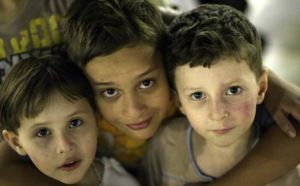News
Every fifth non-western immigrant wants to return home
This article is more than 9 years old.
Survey also revealed that 17 percent had no, or very few, Danish friends.

Here for life, or a temporary homeland? (photo: yeowatzup)
Out of the roughly 472,000 non-Western immigrants and their descendants living in Denmark, about one fifth wish to return to their homelands one day.
According to a survey by Dansk Statistik – which queried some 2,000 immigrants from Turkey, Iraq, Bosnia-Herzegovina, Iran, Syria, Lebanon, Pakistan, Afghanistan and Somalia living in Denmark – one fifth of the respondents answered ‘Yes, I would like to return to my original homeland’.
About 50 percent of respondents said they would not want to return home, while the rest were ambivalent.
READ MORE: Research: Hard to be accepted as a ‘real Dane’ if you have a foreign background
200 repatriated last year
The survey also revealed that 33 percent of the respondents spoke Danish in their homes, while 17 percent said that they had no, or very few, Danish friends.
Furthermore, 51 percent of those asked said they felt just as much Danish as their original nationality, while 25 percent said they felt most Danish.
Last year about 200 immigrants took advantage of Denmark’s repatriation option, which involves the state helping immigrants return to their homelands.
According to new research from Aarhus University, Danes have a hard time accepting those with foreign backgrounds as ‘real Danes’.










































